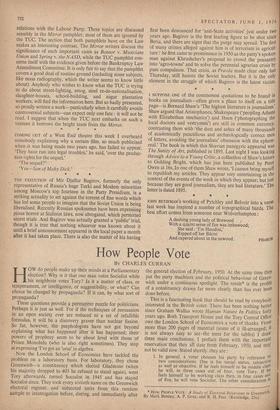THE EXECUTION of Mir Djaffar Bagirov, formerly the only representative
of Russia's huge Turki and Moslem minorities among Moscow's top fourteen in the Party Presidium, is a striking actuality to set against the torrent of fine words which has led some people to imagine that the Soviet Union is being liberalised. Recently Russian spokesmen have been expressing pious horror at Stalinist laws, now abrogated, which permitted secret trials. And Bagirov was actually granted a 'public' trial, though it is true that nothing whatever was known about it until a brief announcement appeared in the local paper a month after it had taken place. There is also the matter of his having first been denounced for 'anti-State activities' just under two years ago. Bagirov is the first leading figure to be shot since Beria, and there are signs that the purge may spread. The first of many crimes alleged against him is of terrorism in agricul- ture he first came to prominence in 1950 as the party's spokes• man against Khrushchev's proposal to crowd the peasantry into 'agro-towns' and to solve the perennial agrarian crisis by pure compulsion. That crisis, as Pravda made clear only last Thursday, still haunts the Soviet leaders. But it is the only element in the struggle of which Bagirov is the latest victim.


































 Previous page
Previous page